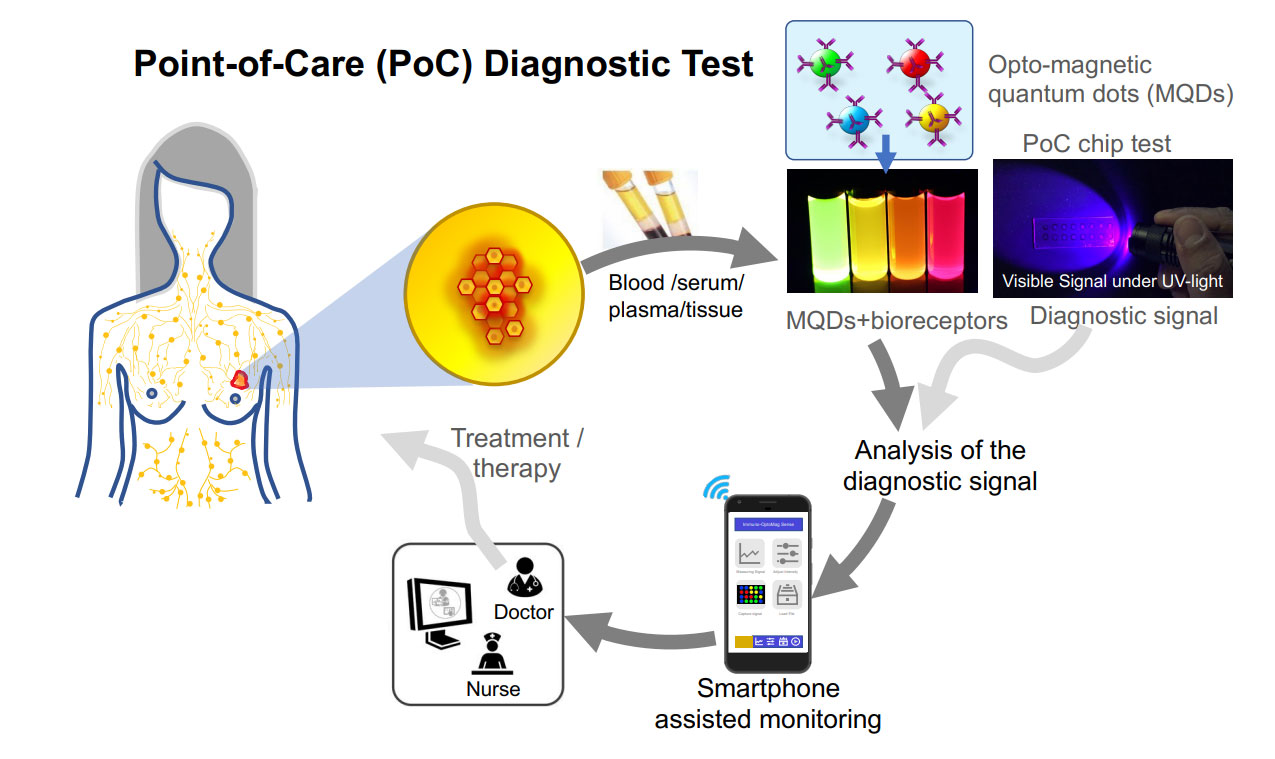SUNUM RESEARCHERS DEVELOP A FAST CANCER DETECTION KIT WITH MAGNETIC QUANTUM DOTS
Breast cancer is the most common type of cancer among women, and it is the second leading cause of cancer-related deaths worldwide. According to a report published by the World Health Organization (WHO) in 2020, it is estimated that there are 2.3 million breast cancer-related cases worldwide and about 685,000 of these cancer cases resulted in death. These figures account for about 15% of all cancer deaths among women.

Mammography, tissue biopsy and ELISA tests are widely used for the diagnosis of diseases, such as breast cancer, for which early diagnosis is important. However, these methods are time-consuming, painful and are available only at centralized clinical facilities. A patented invention at SUNUM offers a fast, easy-to-use alternative method for screening of recurring cancer risks, especially to those who are undergoing treatment. A nano-biosensor kit is developed as a point-of-care (PoC) diagnostic tool for sensitive, rapid and cost-effective detection and monitoring of recurrent cancer, making it a promising tool for disease diagnosis. The immuno-optomagnetic PoC kit developed by SUNUM researchers Javed Kolkar and Anjum Qureshi, is a simple cancer screening tool candidate that enables early detection of a disease and pave way to disease prevention, either at the PoC settings or in clinical laboratories.
Thanks to the immuno-optomagnetic PoC chip and magnetic quantum dots involved in this invention, it is easy to determine biomarker levels from the patient’s blood sample dropped onto this chip. The diagnostic signal can be directly visualized by naked-eye after exposing chip with a UV-torch. The biomarkers can be quantified using a smartphone camera and an application installed on smartphone.
The PoC-based disease diagnosis method enables detecting not only cancer biomarkers, but also can be extended to detecting other biomarkers, bacterial/viral infections, nucleic acids (DNA/RNA), drugs, chemicals, pesticides, or environmental agents using sample sources such as blood, urine, saliva or sweat. Thanks to these features, the broad range of applications makes the kit highly versatile for the analyte detection and disease diagnosis.